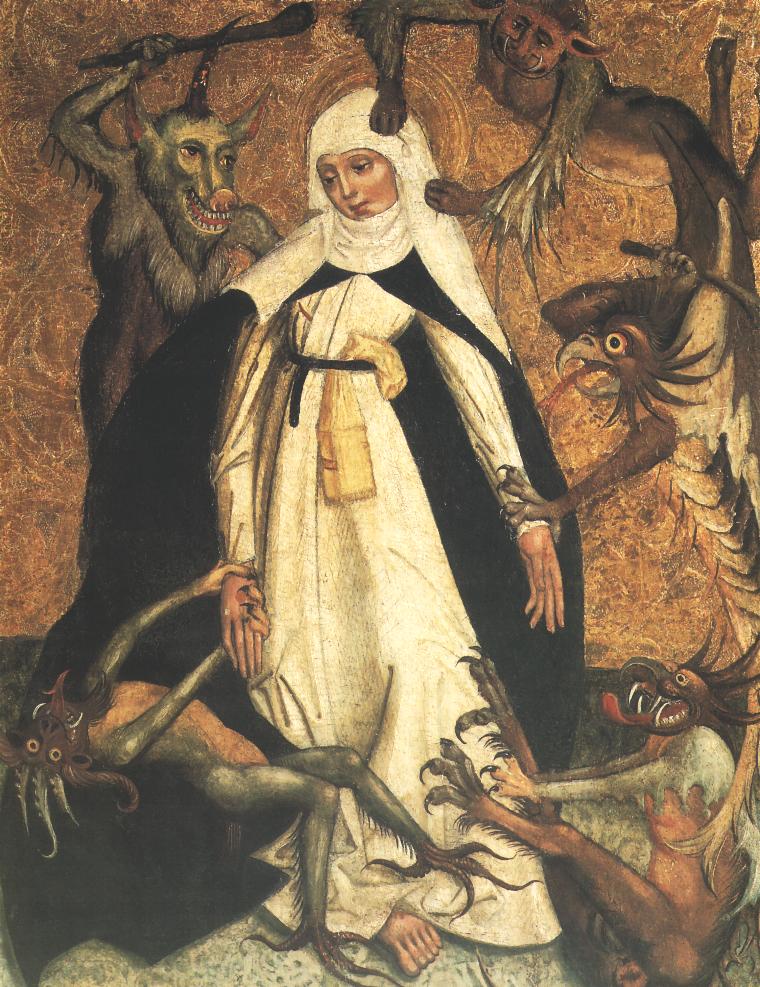Every culture finds clever ways of substituting secular things, which have no meaning for our salvation, for sacred things that – horror of horrors – help us develop spiritually.
For Catholics, there are the obvious cases, such as using Father Christmas as a substitute for the real meaning of the Feast of the Nativity of Our Lord, or spending all of our time on entertainment rather than a considerable part of that time on prayer. Many among us make a cult out of exercise – health is important, you know – or obsessing over sports teams, so much so that they do “not have time” to go to Mass. And so on.
More subtle are those substitutions by which we replace Christian practices with pagan things that resemble them. A common one is couples “living together” and imagining that that is somehow like Marriage. Living without the grace of Marriage, without the total commitment to each other for life, as part of the Christian community is just a caricature of Marriage.
It is more of a stunt, which only shows the superficiality of those involved. They do not want to learn about the depths of human nature. They already know all that they “need.”
Such acts stem from pride, the kind of pride that can ruin one’s whole life. As in: God’s revelation cannot teach me anything. So we have a sad result: modern sex is nothing like the spiritual and physical union of a couple who are united for life in grace. It doesn’t even rise to the level of the old pagan forms of marriage. Human beings are just too deep and mysterious to treat each other so trivially.
In the past it was widely understood: the meaning of life really is grounded in some human values, themselves founded on the nature of things, such as expressing your whole existence in carefully chosen words before a gathering of the faithful community. But it’s significant that, quite often now, we do not even have the community of the faithful at the wedding.
While we are on the subject of the faithful community, parachuting into a Church community and then only using it for certain things, such as casually dropping by for Mass, turns the community into a kind of spiritual cafeteria.

It is quite a reduction to move from church community to cafeteria community. If that’s our attitude, it’s no surprise that we find the parish isn’t really a community in any deep sense anymore.
Participation in a faithful community, first of all, involves actually being there. Secondly, it involves full and complete participation. Ask not what your community can do for you, ask what you can do for your community (with apologies to a rather poor Catholic).
Another strange development now is Catholics doing pagan “prayer” “in place of” Christian prayer. There is only one mediator between God and man, and that is Jesus Christ. Praying in some vague “spiritual” sense is really just daydreaming. It is not joining the great history of prayer to which we belong.
Sad to say, among religious with an obligation to say the Divine Office daily, there’s a trend towards imagining that spiritual reading is some kind of substitute. This is just not getting down to owning the fact that God has already been doing something in the history of the world. And what God is doing is centered on Jesus Christ. Always staying focused on this fact is the core of Catholic faith.
Hedging one’s bets, or more likely, just doing what is easier, or following a fad, is pretty vapid as a substitute for participating in the Catholic faith, body and soul.
A particularly corrupting influence these days is the widespread phenomenon of imitating behaviors that you see on TV. A big problem because often the underlying perspective on human beings in the ad, or the self-help show, or film, is so radically worldly that it short circuits spiritual growth before it can even begin. It takes a developed critical awareness to make good choices. The I-want-to-be-like-that-actor approach to life or basing your life on the views of some emotional pundit is to cede your existence to a non-authoritative third party.
Scripture and the tradition of the Church have real authority quite simply because they are true. They are the places at which we need to begin the unending effort of developing the ability to think critically.
Which brings me back to Marriage. The extraordinary thing about real Marriage is that the spouses help each other to bring Catholicity to every decision. There is a daily pedagogy in the graced, fully committed, shared life, helping each other to fuller and fuller life in the light of the truth.
Such a couple should be looking to Catholic teaching for guidance – not to magazines, Internet chat rooms, or TV shows. Accepting the daily pedagogy of the sacraments brings each of the spouses to a totally new state that neither of them could have imagined when they got married.
Couples who have committed themselves to each other for life have also committed themselves to an unknown future – but an unknown future together, under the aegis of God’s promises to the Church and all her members.
With those promises available to each and every one of us, why would we ever accept shabby substitutes?















